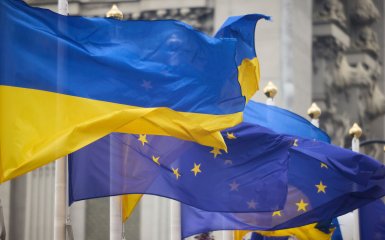In support of Ukraine, on the eve of the second anniversary of the criminal war unleashed by Russia, the European Union is preparing a new large-scale package of sanctions against the aggressor country and other measures to help Kyiv.
What is known about the new EU sanction package against Russia?
The new sanctions package will update the list of persons subject to restrictions by the EU countries due to their involvement in the armed aggression of the Russian Federation against Ukraine.
As part of the aid, it is also planned to allocate 50 billion euros to Ukraine over the next four years.
At the same time, according to the interlocutors of the publication, part of the funds will be immediately transferred to Ukraine.
In addition, part of the obligations of the EU countries in the framework of supporting Ukraine will be the annual allocation of 5 billion euros, as well as the transfer of profits from frozen Russian assets to Kyiv.
These are money, weapons and sanctions at a time when we recognise that Ukrainians need encouragement. But after two years, we see that there are limits to what we can do — the publication quotes one of the European diplomats.
In particular, the vast majority of new sanctions will apply to individuals and legal entities associated with the Kremlin's criminal war against Ukraine.
At the same time, the authors of the article assume that the EU countries are unlikely to approve the ban on aluminum supplies from the Russian Federation, as demanded by Poland and the Baltic states.
Other elements may also be softened to win support, as previous attempts by some member states to target Russian exports of nuclear fuel and liquefied natural gas to the EU failed due to a lack of consensus, the publication said.
What is known about the mechanisms of financial assistance from the EU
On February 1, the leaders of the EU countries must sign a document on the expansion of the EU budget, in which 50 billion euros should be directed to help Ukraine.
In December, due to Hungary's blockade, an agreement could not be reached, but currently the European Commission is ready to make concessions for Orbán's approval of the document on the review of the EU's long-term budget.
On the conviction of the majority of European diplomats, the Prime Minister of Hungary, Viktor Orbán, will eventually agree to approve the document.
If Orban fails, it will be like a political exit from the union, — notes one of the European diplomats.
Another additional element is the possibility of providing part of the aid to Ukraine, however, the exact amount is still being discussed.
In addition, the EU is discussing the transfer of funds to Ukraine from the proceeds of the frozen assets of the Russian Federation as part of aid.
The European Commission's proposal regarding Russian state assets is dated December, but it does not provide for the actual confiscation of these profits and their transfer to Ukraine. According to a high-ranking EU diplomat who participated in the negotiations, the proposal regarding frozen assets "will demonstrate progress, but will not bring money closer to Kyiv." "We are pushing the can down the road," the publication notes.
According to EU representatives, the seizure of Russian assets, most of which are located in Europe, is unlikely to receive support from Italy, France and Germany.




